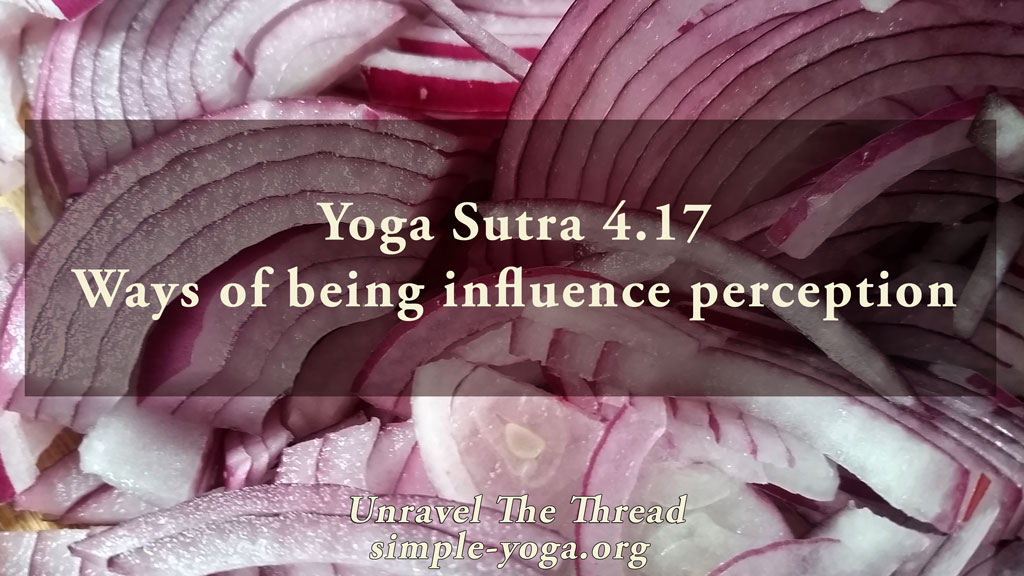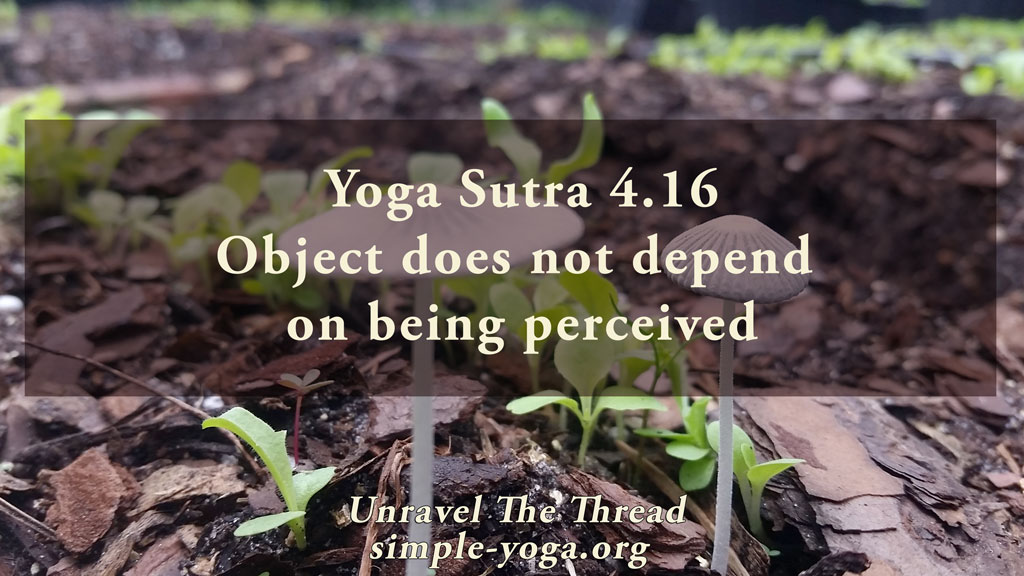
4.17 Ways of being influence perception
September 13, 2022
4.18 Consciousness permeates everything that exists
October 3, 2022
4.17 Ways of being influence perception
September 13, 2022
4.18 Consciousness permeates everything that exists
October 3, 20224.16 Object does not depend on being perceived

4.16 The object does not depend on being perceived. Otherwise, what would happen when the object is not being perceived by a mind?
Continuing the same thread of thought, this sutra says that objects in the world are not created by your imagination. Since objects remain in existence even when you are not perceiving them, objects exist independent from perception. Remember that Patañjali makes a clear distinction between knowledge and imagination in aphorisms 1.7 and 1.9. This distinction is relevant particularly for applying this sutra.
If you believe that everything that exists is only an illusion, would you be less inclined to participate in your life?
Is it possible that everything in the universe exists instead of being just a figment of your imagination?
What is your attitude towards the world?
What is it that makes it possible for you to perceive anything?
What is the relationship between your awareness and the world that can be perceived?
If there is a relationship between your individual awareness and what can be experienced, is that an integrative, adversarial, or neutral relationship?
If you wish, you may contemplate further questions: What is the purpose of everything that exists?
What is your purpose as a person in the world?
To what extent do your intentions, actions and interactions align with your purpose?
Are your purpose and the purpose of the world in alignment or in conflict?
As usual, one more way of exploring the meaning of this sutra is by chanting it.
You can choose to chant it in its traditional form with some of the words coming together:
4.16 na caikacittatantraṃ cedvastu tadapramāṇakaṃ tadā kiṃ syāt
न चैकचित्ततन्त्रं वस्तु तदप्रमाणकं तदा किं स्यात् ॥१६॥
Another option is to chant each word in the sutra individually:
- na
- ca
- eka
- citta
- tantraṃ
- vastu
- tad
- apramāṇakaṃ
- tadā
- kiṃ
- syāt
If you prefer, you may listen to the podcast:
This is an excerpt from the book Unravel the thread: Applying the ancient wisdom of yoga to live a happy life
If you find Simple-Yoga.org and Unravel the thread useful, consider supporting my labor with a donation, you may also donate using PayPal or Venmo. Thank you!
